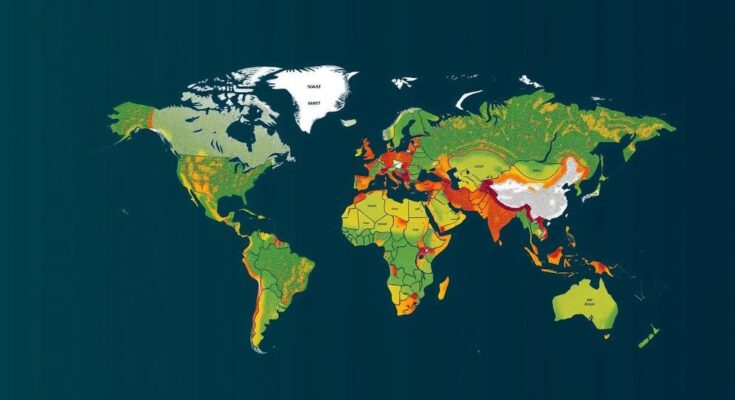The panel discussion hosted by the Wilson Center addressed the pressing issue of climate security, highlighting the impact of climate change on global stability, the evolving role of U.S. foreign policy, and strategies for fostering cooperation through climate action. Experts shared insights from two forthcoming books on the subject, emphasizing the urgent need for integrated responses to address the interplay of climate change, conflict, and peace.
The increasing incidence of extreme weather events such as heatwaves and floods worldwide is severely affecting community resilience, intensifying conflict risks, and exacerbating social inequality. In recognition of these challenges, nations globally are striving for a shift toward sustainable energy, a move that may introduce its own geopolitical complexities. It has therefore become imperative for countries and multilateral organizations to assess the intricate relationships between climate change, conflict, and peace, a sentiment echoed in the COP28 Declaration on Climate, Relief, Recovery, and Peace. In collaboration with the Center for Climate & Security, the Wilson Center hosted an informative panel discussion on October 1. Esteemed experts including climate security pioneer Ms. Sherri Goodman, environmental journalist Mr. Peter Schwartzstein, Middle East specialist Ms. Merissa Khurma, and Ms. Anne Witkowsky, Assistant Secretary for the Bureau of Conflict and Stabilization Operations at the United States Department of State, convened to explore the far-reaching implications of climate change on global security dynamics. The dialogue examined the evolution of U.S. involvement in climate security initiatives and identified avenues for promoting stability and fostering cooperative relationships through proactive climate measures. The discussion prominently featured insights from two newly forthcoming books: Ms. Goodman’s “Threat Multiplier: Climate, Military Leadership, and the Fight for Global Security,” expected in 2024, and Mr. Schwartzstein’s “The Heat and the Fury: On the Frontlines of Climate Violence.” These speakers provided critical analysis highlighting the vulnerabilities faced by communities under the duress of climate stressors. The event underscored the necessity of integrated policies that address climate change as a multifaceted crisis, capable of contributing to instability and exacerbating existing conflicts.
The topic of climate security has gained significant importance as climate change continues to impact communities worldwide, leading to heightened conflict risks and social inequalities. The relationship between environmental factors and global security is increasingly recognized in international forums, resulting in collaborative efforts to understand and mitigate these risks. The COP28 Declaration emphasizes the urgent need for coordinated policy responses that not only address the challenges posed by climate change but also promote peace and recovery in affected areas. By involving various stakeholders, including military and civilian sectors, nations are working towards strategies that intertwine climate action with efforts to foster stability and cooperation.
In summary, with the urgent challenges posed by climate change to global security, there exists a critical need for countries to pursue integrated approaches that address these multifaceted issues. The panel discussion highlighted the evolving nature of U.S. foreign policy in response to climate security risks. By incorporating climate initiatives into broader strategic engagements, there is potential not only for domestic stabilization but also for international cooperation in addressing the underlying causes of conflict and promoting resilience against climate impacts.
Original Source: www.wilsoncenter.org




